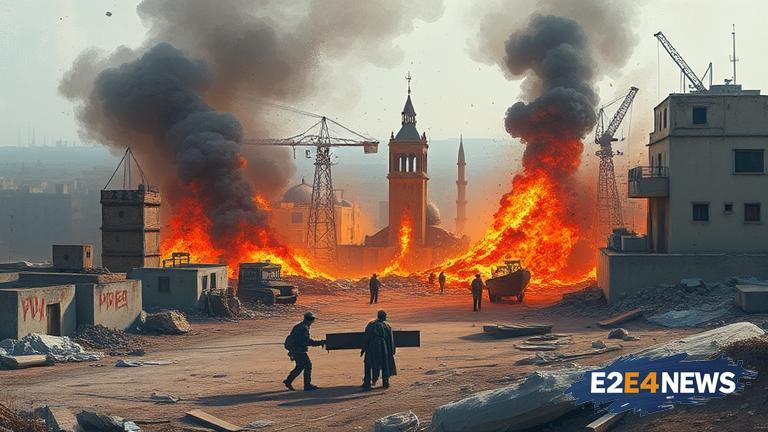The Israeli government is contemplating a full takeover of the Gaza Strip, a move that comes as ceasefire talks with Hamas have collapsed. This development has raised concerns about the potential for an escalated conflict in the region. The situation in Gaza has been volatile for years, with periodic outbreaks of violence between Israel and Hamas. The latest round of ceasefire talks, which were aimed at establishing a lasting peace, has failed to yield any meaningful results. As a result, Israel is now considering more drastic measures, including a full takeover of the Gaza Strip. This move would likely be met with significant resistance from Hamas and other Palestinian groups, who have long been opposed to Israeli occupation. The Israeli government has stated that it is prepared to take all necessary steps to protect its citizens and ensure the security of the region. However, the international community has expressed concerns about the potential consequences of such a move, including the impact on civilians and the potential for a wider conflict. The United States, in particular, has urged Israel to exercise restraint and to continue pursuing diplomatic efforts to resolve the conflict. Despite these warnings, Israel appears to be moving forward with plans for a potential takeover. The Israeli military has been mobilizing troops and equipment along the Gaza border, and there have been reports of increased military activity in the region. The situation remains highly volatile, and it is unclear what the future holds for the region. The collapse of ceasefire talks has also raised concerns about the potential for a wider conflict, involving other countries in the region. The international community is urging all parties to exercise restraint and to continue pursuing diplomatic efforts to resolve the conflict. The United Nations has called for an emergency meeting to discuss the situation and to explore options for resolving the conflict peacefully. The European Union has also expressed concerns about the potential consequences of an Israeli takeover of Gaza, and has urged Israel to reconsider its plans. As the situation continues to unfold, it remains to be seen what the future holds for the region. The Israeli government has stated that it is committed to finding a peaceful resolution to the conflict, but it is unclear what steps it will take to achieve this goal. The international community will be watching the situation closely, and will be urging all parties to exercise restraint and to pursue diplomatic efforts to resolve the conflict. In the meantime, the people of Gaza remain caught in the middle, facing significant uncertainty and insecurity. The humanitarian situation in Gaza is also a major concern, with many people lacking access to basic necessities like food, water, and healthcare. The international community is urging all parties to prioritize the protection of civilians and to take steps to address the humanitarian needs of the population. As the situation continues to evolve, it is clear that a peaceful resolution to the conflict will require significant effort and commitment from all parties involved. The Israeli government, Hamas, and the international community must work together to find a solution that addresses the needs and concerns of all parties, and that prioritizes the protection of civilians and the promotion of peace and stability in the region. The collapse of ceasefire talks is a significant setback, but it is not a reason to give up on the pursuit of peace. Instead, it should serve as a catalyst for renewed efforts to find a lasting resolution to the conflict. The international community must continue to urge all parties to exercise restraint and to pursue diplomatic efforts to resolve the conflict peacefully. Only through a commitment to peace and a willingness to work together can the parties involved hope to find a lasting solution to the conflict and to promote stability and security in the region.





